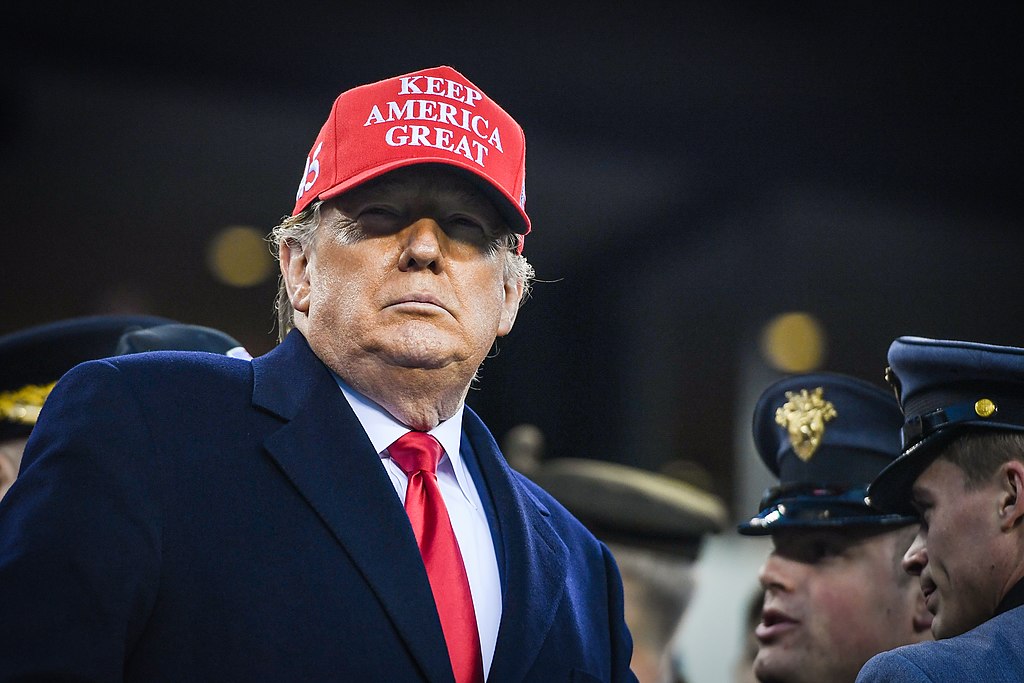Donald Trump has announced an ambitious plan to expand U.S. energy exports, aiming to position the country as a global leader in oil, gas, and renewable energy markets. His administration is touting the proposal as a win for the economy and a boost to international energy security, but critics warn of potential environmental and geopolitical consequences.
Oil and Gas Exports Take Center Stage
The Trump administration plans to expand crude oil and liquefied natural gas (LNG) exports significantly, focusing on meeting growing global demand. Proposed policies include streamlining export permit approvals, incentivizing production through tax breaks, and negotiating new trade agreements to secure market access in Asia, Europe, and Africa.
“America’s energy dominance starts with taking our resources to the world stage,” a senior Trump official stated during a press briefing. With the global LNG market projected to grow exponentially in the coming years, industry leaders are optimistic that the plan could cement the U.S. as a top exporter.
Critics, however, argue that the focus on fossil fuels undermines international efforts to combat climate change. Environmental groups caution that increasing oil and gas exports could drive up greenhouse gas emissions and delay the global transition to cleaner energy.
Renewables and Emerging Markets
While the administration’s focus leans heavily on fossil fuels, Trump has also promised to support renewable energy exports. Policies include funding for solar and wind projects tailored for international markets and partnerships to develop green energy technologies in emerging economies. Officials argue that these measures could strengthen America’s competitiveness in the rapidly growing renewable energy sector.
However, skeptics are questioning the sincerity of this pledge, given Trump’s history of prioritizing traditional energy sources. Maria Hernandez, an environmental economist, said, “The investment in renewables seems like an afterthought. The administration needs a stronger commitment to green energy.”
Netizens React to Trump’s Energy Agenda
Trump’s energy export plan has sparked passionate debates online, with netizens voicing diverse opinions. User @EnergyExportsMatter tweeted, “Trump is right—boosting exports means more jobs and a stronger economy. America first, as it should be!” On the other hand, @ClimateActionNow argued, “This plan ignores the bigger picture. Expanding fossil fuel exports is a disaster for the environment and global warming.”
Others focused on the renewable energy aspect. “Exporting green tech is a step forward, but we need more action on climate solutions,” wrote @GreenEnergyAdvocate. Meanwhile, @DrillBabyDrill countered, “Fossil fuels are the backbone of the global economy. We can’t ignore that reality.”
Concerns over geopolitical implications also surfaced. User @GlobalEnergyWatch tweeted, “Relying on U.S. energy could destabilize global markets. Trump’s plan needs more balance.” Conversely, @ProAmericaTrade wrote, “America should lead the world in energy. This is the bold leadership we’ve been waiting for!”
Challenges and Global Impact
Trump’s energy export strategy is poised to face significant hurdles, including legal battles from environmental groups and pushback from international trade partners wary of U.S. dominance. As the world moves toward cleaner energy solutions, the administration’s policies could shape global energy dynamics for decades to come.



 Iran Detains U.S. Citizens Amid Escalating Conflict With the United States and Israel
Iran Detains U.S. Citizens Amid Escalating Conflict With the United States and Israel  Middle East Conflict Escalates After Khamenei’s Death as U.S., Israel and Iran Exchange Strikes
Middle East Conflict Escalates After Khamenei’s Death as U.S., Israel and Iran Exchange Strikes  EU Urges Maximum Restraint in Iran Conflict Amid Fears of Regional Escalation and Oil Supply Disruption
EU Urges Maximum Restraint in Iran Conflict Amid Fears of Regional Escalation and Oil Supply Disruption  U.S. Lawmakers Question Trump’s Iran Strategy After Joint U.S.-Israeli Strikes
U.S. Lawmakers Question Trump’s Iran Strategy After Joint U.S.-Israeli Strikes  Trump Announces U.S. Strikes on Iran Navy as Conflict Escalates
Trump Announces U.S. Strikes on Iran Navy as Conflict Escalates  Australia Rules Out Military Involvement in Iran Conflict as Middle East Tensions Escalate
Australia Rules Out Military Involvement in Iran Conflict as Middle East Tensions Escalate  Russia Signals Openness to U.S. Security Guarantees for Ukraine at Geneva Peace Talks
Russia Signals Openness to U.S. Security Guarantees for Ukraine at Geneva Peace Talks  Melania Trump Chairs Historic U.N. Security Council Meeting on Children Amid Iran Conflict
Melania Trump Chairs Historic U.N. Security Council Meeting on Children Amid Iran Conflict  Does international law still matter? The strike on the girls’ school in Iran shows why we need it
Does international law still matter? The strike on the girls’ school in Iran shows why we need it  Pentagon Downplays ‘Endless War’ Fears After U.S. Strikes on Iran Escalate Conflict
Pentagon Downplays ‘Endless War’ Fears After U.S. Strikes on Iran Escalate Conflict  Supreme Court Backs GOP Lawmaker in New York Redistricting Fight Ahead of Midterms
Supreme Court Backs GOP Lawmaker in New York Redistricting Fight Ahead of Midterms  U.S.-Israel War on Iran Escalates as Gulf Conflict Disrupts Oil, Air Travel and Regional Security
U.S.-Israel War on Iran Escalates as Gulf Conflict Disrupts Oil, Air Travel and Regional Security  Rubio Says U.S. Would Not Target School After Deadly Iran Strike Reports
Rubio Says U.S. Would Not Target School After Deadly Iran Strike Reports  Trump’s Iran Strikes Spark War Powers Clash in Congress
Trump’s Iran Strikes Spark War Powers Clash in Congress  Why did Iran bomb Dubai? A Middle East expert explains the regional alliances at play
Why did Iran bomb Dubai? A Middle East expert explains the regional alliances at play  Suspected Drone Strike Hits RAF Akrotiri Base in Cyprus, Causing Limited Damage
Suspected Drone Strike Hits RAF Akrotiri Base in Cyprus, Causing Limited Damage 



























